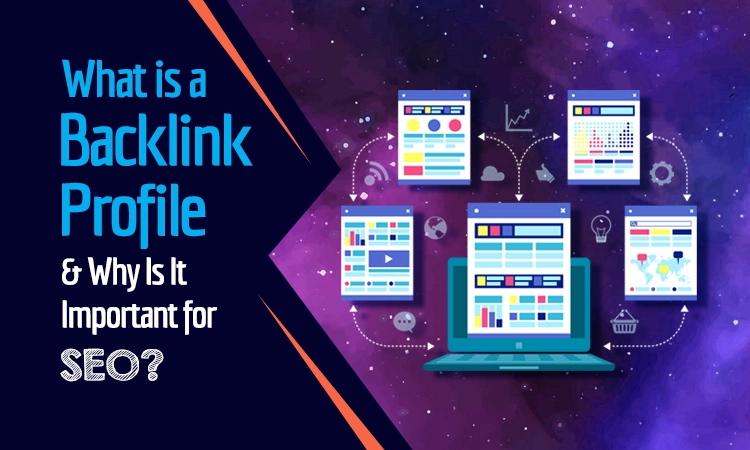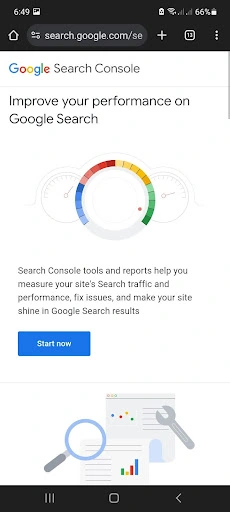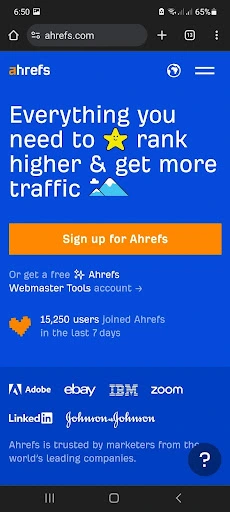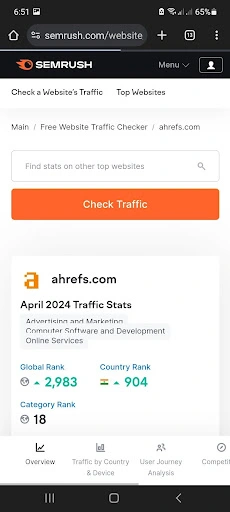A backlink profile, often referred to as inbound or incoming links, is a collection of hyperlinks from other websites pointing to your own.
When another website links to yours, it acts as an endorsement, signaling to search engines your content is valuable, relevant, and trustworthy. This endorsement can greatly enhance your site’s visibility and authority.
This article answers the questions: What is a backlink profile in SEO, and why is it important? Discover why a robust backlink profile is crucial for search engine optimization (SEO), how to implement it effectively, and how it can significantly improve your site’s rankings and attract organic traffic.
What Constitutes a Backlink Profile?
A backlink profile consists of all external backlinks to a website. These profiles are crucial in assessing a site’s authority and potential to rank well in search engines.
Understanding the various elements of a backlink profile can help when evaluating a website’s strength and diversity, which are critical factors in search engine optimization (SEO).
What Do Search Engines Seek In a Backlink Profile?
Search engines seek a backlink profile demonstrating relevance, authority, diversity, and quality. They favor backlinks from reputable, high-authority sites relevant to your industry, a natural mix of link sources, and contextual placements within high-quality content. Let’s break it all down.
-
Number of Backlinks
The number of profile backlinks pointing to a website is a fundamental measure of its popularity and importance. More backlinks can help increase a website’s visibility and SEO performance. However, we should always consider quality and relevance over quantity.
-
Quality of Backlinks
The quality of your profile backlinks is undoubtedly more important than their quantity. Links from trusted, reputable websites are more valuable as they help create credibility for your site.
Search engines view these high-quality links as a strong endorsement of your content.
-
Relevance to Your Niche
Backlinks from relevant websites related to your industry or subject matter niche are particularly beneficial. They enhance your site’s relevance for specific search queries and improve the quality of traffic reaching it, leading to better engagement rates.
-
Domain Authority of the Linking Site
Links from highly authoritative websites are particularly valuable because they are considered more trustworthy and influential. These links provide a more substantial boost to your site’s perceived authority and position in search engines.
-
Diversity of Backlink Sources
A strong backlink profile features links from a diverse array of sources. This diversity helps ensure the link profile appears natural and robust to search engines. Backlink profiles without enough diversity are more likely to seem artificially manipulated.
-
Different Domains
Securing backlinks from multiple unique domains is more beneficial than accumulating many links from a single referring domain. This diversity signals to search engines that multiple sources endorse your website, broadening your site’s appeal and authority.
-
Various Types (Blogs, Forums, News Sites)
Having backlinks from different types of websites, such as blogs, forums, and news sites, enriches your backlink profile. Each source type brings its own value. For example, forums foster community discussions related to your niche, while news sites offer timely endorsements. Both can enhance reach and relevance, especially when combined.
How to Analyze a Backlink Profile?
Analyzing your backlink profile is essential for understanding your website’s authority and position in search rankings.
Here’s how you can conduct an effective analysis using various search tools and metrics:
Use of SEO Tools
Several tools are commonly used for backlink profile analysis:
- Google Search Console
- Ahrefs
- SEMrush
- Moz Link Explorer
- Majestic SEO
- BuzzSumo
- Ubersuggest
Google Search Console
[source]
Google Search Console provides a straightforward method for viewing backlinks.
Here’s how to use it:
- Log in and select your site.
- Go to ‘Links’ in the left menu.
- View ‘Top linking sites’ to see which domains link to your site most frequently.
This tool provides a snapshot of who links to your site, but it lacks the depth found in more specialized tools.
Ahrefs
[source]
Ahrefs is a powerful tool for detailed backlink profile analysis and offers features such as:
- A “Backlink Profile” report, showing new, lost, and broken backlinks
- The ability to analyze anchor text and quality of backlinks
- Tools to see how backlinks distribute across different domain ratings
SEMrush
[source]
SEMrush provides a great comprehensive view of backlink profile health, including:
- Backlink Analytics to analyze your site’s backlink profile
- Backlink Audit to identify and manage toxic backlinks
- Comparison features to track your profile against competitors
Assessment of Backlink Quality
Using the tools mentioned, you can assess backlink profile quality by:
- Examining the link authority and trust score of linking sites
- Analyzing the relevance of the linking site’s content to your niche and anchor text
- Reviewing anchor text and assessing how natural and applicable it is to your content
Identification of Toxic Backlinks
Toxic backlinks are links originating from problematic sources containing unreliable content or spam. These links can harm your site’s ranking.
Here’s how to identify them:
- Use SEMrush’s Backlink Audit tool to scan your backlink profile for any links originating from sources with high toxicity scores.
- Look for sudden spikes in backlink numbers, which can be a sign of spammy link acquisition.
Links from Spammy or Irrelevant Sites
Backlinks from spammy or irrelevant sites can negatively impact your SEO strategy by:
- Diluting your keyword relevance
- Potentially leading to search engine penalties if seen as part of a scheme
Links from Sites with Low Domain Authority
While not inherently harmful, links from sites with low authority may offer limited benefit to your overall digital marketing strategy. They won’t necessarily damage your rank, but they won’t provide much lift compared to backlinks from high-authority sites.
How to Improve a Backlink Profile?
Improving a backlink profile is crucial for enhancing your website’s SEO performance and overall online authority.
Here are some effective strategies to enhance the quality and effectiveness of your backlink profile:
-
Creating High-Quality Content
Creating content that is informative, engaging, and relevant is fundamental to attracting natural backlinks. High-quality content encourages other websites to link to your pages as a valuable resource for their audience.
-
Infographics
Utilize infographics to capitalize on the shareability and appeal of visual data. Well-designed infographics simplify complex information and are likely to be shared across websites and social media, increasing your chances of gaining backlinks.
-
Comprehensive Guides
Producing in-depth guides on specific topics can establish your authority and expertise, making them valuable assets in your link-building strategy. These comprehensive resources often attract backlinks from other sites looking to provide their readers with detailed information in your niche.
-
Case Studies
Detailed case studies highlighting your business success stories and accomplishments can attract backlinks from industry-related websites. These case studies provide practical examples of theories in action, making them appealing to educational or professional sources.
-
Guest Blogging
Guest blogging on relevant, authoritative sites can be a powerful method for earning quality backlinks. By contributing valuable content to other blogs, you gain access to a new audience and encourage backlinks from a respected source within your industry.
-
Broken Link Building
This strategy involves finding broken links on websites and proposing your content as a replacement.
Here’s how to do it:
- Use tools like Ahrefs or SEMrush to find broken links on websites relevant to your niche.
- Contact the website owner, alert them about the broken link, and suggest replacing it with a link to a relevant piece of your content.
Additional Tips
- Regularly Audit Your Backlink Profile: A regular audit or backlink analysis can help you identify and remove toxic, low-quality backlinks that may harm your SEO efforts.
- Leverage Social Media: Promoting your content on social media can increase its visibility and likelihood of earning backlinks.
- Engage with Your Community: Participate in forums, comment on blogs, and engage with your industry community to increase visibility and natural link acquisition.
Challenges in Managing a Backlink Profile
Managing a healthy backlink profile involves navigating several challenges that can impact a website’s search rankings and overall SEO strategy.
Here are some common difficulties you might face:
Identifying and Removing Bad Backlinks
- Detection: Identifying bad backlinks requires regular audits using SEO tools like Ahrefs, SEMrush, or Google Search Console. These tools can help you identify low-quality or spammy sites linking to your content, which could potentially harm your site’s reputation and backlink profile. However, this process takes time and persistence, which can be challenging when juggling other aspects of your business.
- Removal or Disavowal: Once identified, toxic backlinks should be removed. This often involves reaching out to website owners to request link removal. If this proves unsuccessful, Google’s disavow tool allows you to ask Google not to consider these links when assessing your site, effectively minimizing their negative impact. Again, while removing or disavowing bad backlinks is a crucial part of building a healthy backlink profile, the process can be tedious and time consuming.
Building High-Quality Backlinks Consistently
Securing high-quality backlinks on a consistent basis is challenging due to the competitive nature of content creation and digital marketing. Developing relationships with authoritative websites, producing content that naturally attracts backlinks, and staying active in industry conversations all require substantial time and strategic effort.
Adapting to Search Engine Algorithm Changes
Search engines frequently update their algorithms to improve the quality and relevance of search results. These changes can affect how a backlink profile is evaluated, making it necessary to adjust your backlink strategy from time to time.
Staying adaptive and flexible in your approach and focusing on ethical link practices helps mitigate the impact of these changes. However, staying on top of search engine updates presents a unique challenge for anyone focused on digital marketing for their business.
Keeping Up with Google’s Updates
Google periodically rolls out major updates that can significantly affect SEO strategies, including how a backlink profile is valued.
It’s crucial to:
- Stay Informed: Follow SEO news sources, Google’s official blog, and industry leaders on social media to get timely updates.
- Analyze Impact: After an update, analyze shifts in your website traffic and rankings to understand the impact on your site.
- Adjust Strategies: Based on your analysis, refine your backlinking strategy to align with new algorithm standards.
Improve Your Search Engine Optimization
Well-managed backlink profiles are essential for enhancing website SEO, boosting authority, and improving overall search rankings.
Effective backlink profile management ensures your website is perceived favorably by search engines, which can significantly influence your site’s visibility and organic traffic.
If you are not actively working to improve your backlink profile, you will fall behind the competition.
For those of you who don’t want to manage your link-building efforts in-house, we can help. Contact us today to discuss our custom outreach and pay-per-link services.



















